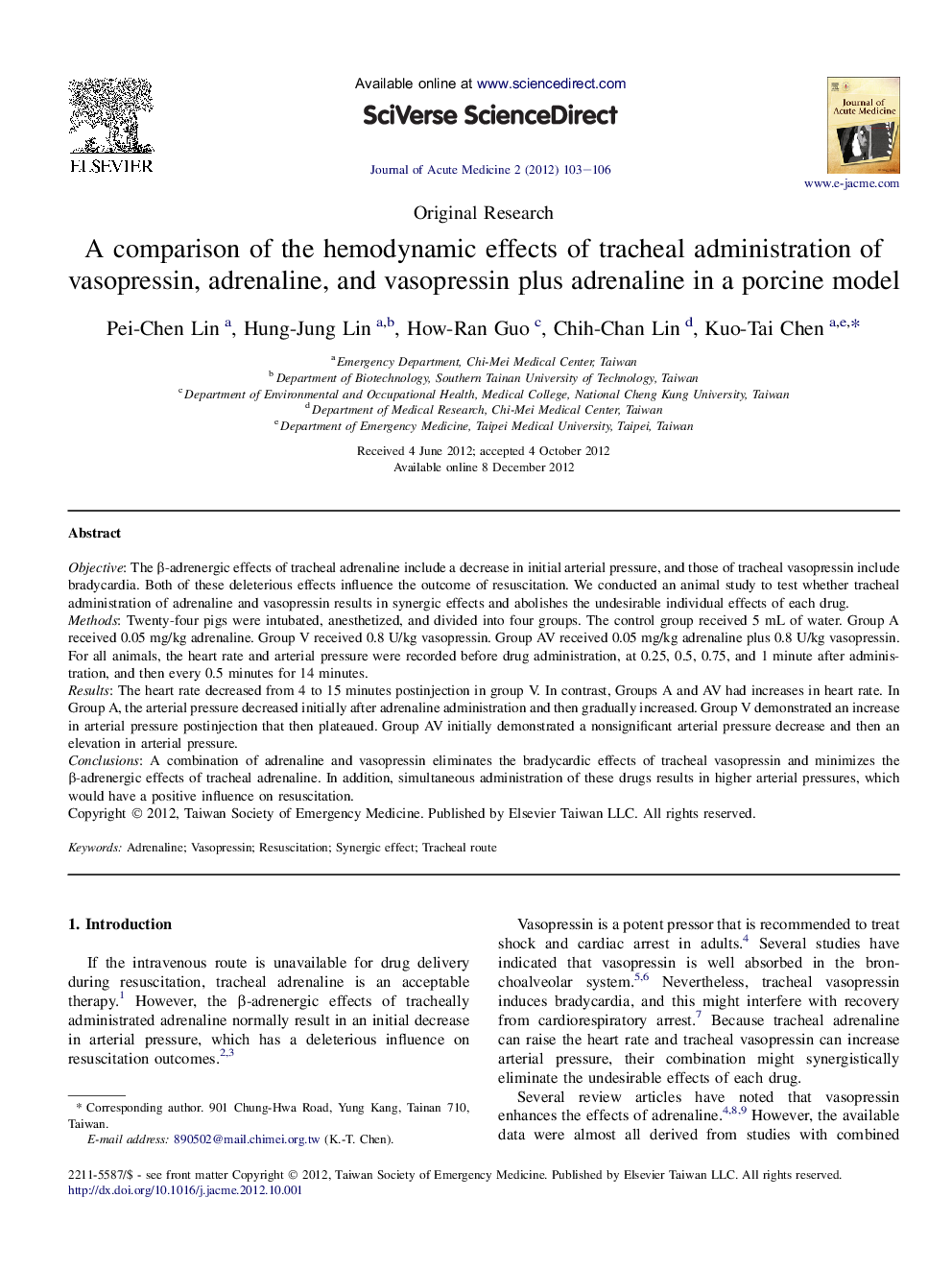| Article ID | Journal | Published Year | Pages | File Type |
|---|---|---|---|---|
| 3244935 | Journal of Acute Medicine | 2012 | 4 Pages |
ObjectiveThe β-adrenergic effects of tracheal adrenaline include a decrease in initial arterial pressure, and those of tracheal vasopressin include bradycardia. Both of these deleterious effects influence the outcome of resuscitation. We conducted an animal study to test whether tracheal administration of adrenaline and vasopressin results in synergic effects and abolishes the undesirable individual effects of each drug.MethodsTwenty-four pigs were intubated, anesthetized, and divided into four groups. The control group received 5 mL of water. Group A received 0.05 mg/kg adrenaline. Group V received 0.8 U/kg vasopressin. Group AV received 0.05 mg/kg adrenaline plus 0.8 U/kg vasopressin. For all animals, the heart rate and arterial pressure were recorded before drug administration, at 0.25, 0.5, 0.75, and 1 minute after administration, and then every 0.5 minutes for 14 minutes.ResultsThe heart rate decreased from 4 to 15 minutes postinjection in group V. In contrast, Groups A and AV had increases in heart rate. In Group A, the arterial pressure decreased initially after adrenaline administration and then gradually increased. Group V demonstrated an increase in arterial pressure postinjection that then plateaued. Group AV initially demonstrated a nonsignificant arterial pressure decrease and then an elevation in arterial pressure.ConclusionsA combination of adrenaline and vasopressin eliminates the bradycardic effects of tracheal vasopressin and minimizes the β-adrenergic effects of tracheal adrenaline. In addition, simultaneous administration of these drugs results in higher arterial pressures, which would have a positive influence on resuscitation.
